If you buy a game on a sale night and Steam says “Pending Transaction,” it’s like being at the wickets: they’ve swiped your card but haven’t given you a ticket. Money appears to be “gone,” the game isn’t in your library, and trying another time could open you up to double charges. This guide provides you with a practical approach to get out of limbo fast, plus a simple model to understand why that happens—and how not to repeat it next time.
What a Pending Charge Actually Is on Steam Purchases
Payment systems work in three stages: authorization, capture, and settlement. Authorization is your bank saying, “Hey, we reserved funds and it looks OK.” Capture is Steam making sure the purchase is authorized and submitting a charge for payment. Settlement is the back-office transfer that comes next. A Steam pending transaction is one in which the authorization occurred, but it hasn’t been captured or has been aborted.
- What a Pending Charge Actually Is on Steam Purchases
- A 10-Minute Triage That Will Eliminate Nearly All Cases
- Step 1: Verify Steam’s Purchase History
- Step 2: Get the Bank Authorization
- Step 3: Start Over With a Clean Slate
- The Three Clocks Model of Delays in Steam Payments
- Shiva Technique Nuances You Can Apply During Checkout
- Smart Preventive Habits to Avoid Steam Payment Issues
- When to Sit Tight and When to Complain to Support
- A Simple Decision Framework for Steam Pending Payments
- The Takeaway: Quickly Resolve Steam Payment Pending
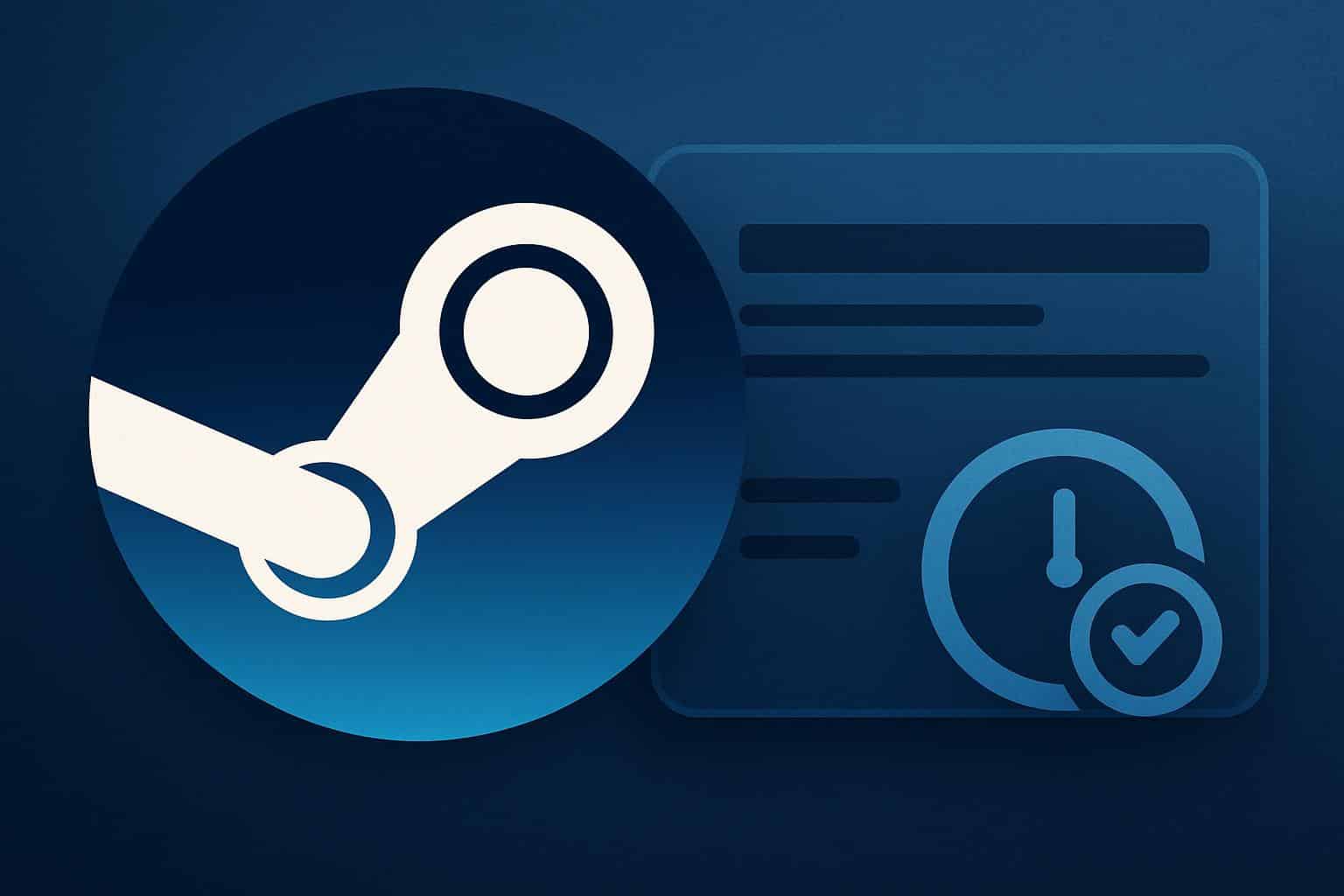
You can have two pendings at the same time:
- Bank-side pending: Your bank shows a hold, but Steam does not show the game in your library.
- Steam-side pending: Your Steam purchase history lists a transaction as “Pending” or “Processing,” and the store restricts further purchases until it goes away.
Why Steam blocks new purchases temporarily: It protects you from accidental duplicates, and it performs antifraud checks. Spamming the Buy button may only increase the delay and generate additional bank holds on the funds, so the quickest correction is a single targeted fix rather than trying multiple times.
A 10-Minute Triage That Will Eliminate Nearly All Cases
Step 1: Verify Steam’s Purchase History
Go to your account details and check your purchase history. If you spot an order marked as pending, open the order. If Steam offers a Cancel option, take that route. It will unlock Steam’s internal barrier almost immediately, even if your hold with the bank continues. After you cancel, give it a minute before trying to make another purchase.
If there is no Cancel option and the order status is processing, wait 15–30 minutes. At peak sale times, or when additional verification is required by Steam’s risk checks, there might be slight delays. Do not try something new in that period.
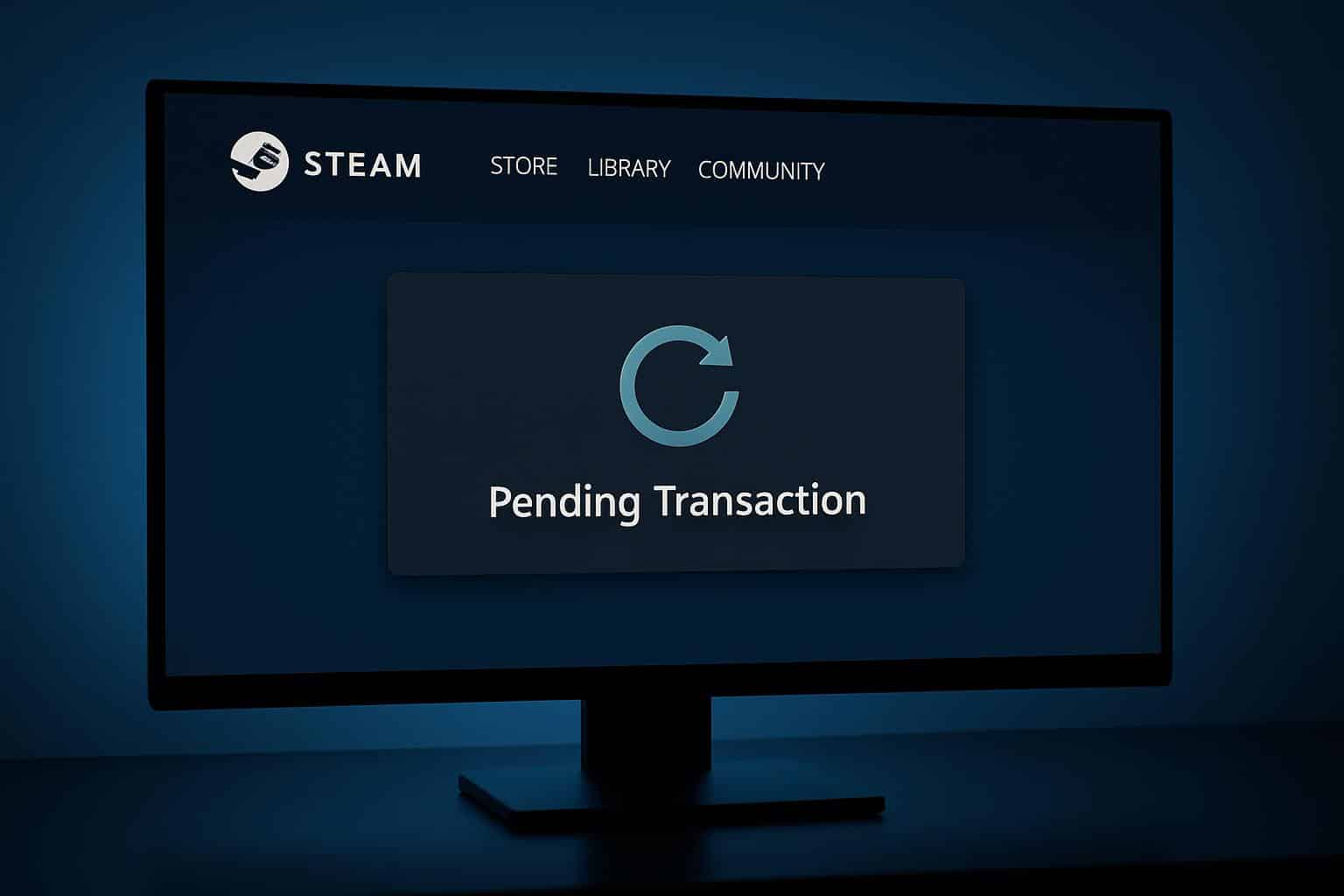
Step 2: Get the Bank Authorization
Look in your banking app for a pending hold that corresponds to the attempted purchase. That hold is standard; it is not the final charge. A pending authorization should not be disputed or charged back. If Steam declines the purchase, or if the bank authorization (credit card transaction) is canceled for any reason, your bank will hold it until their own release time.
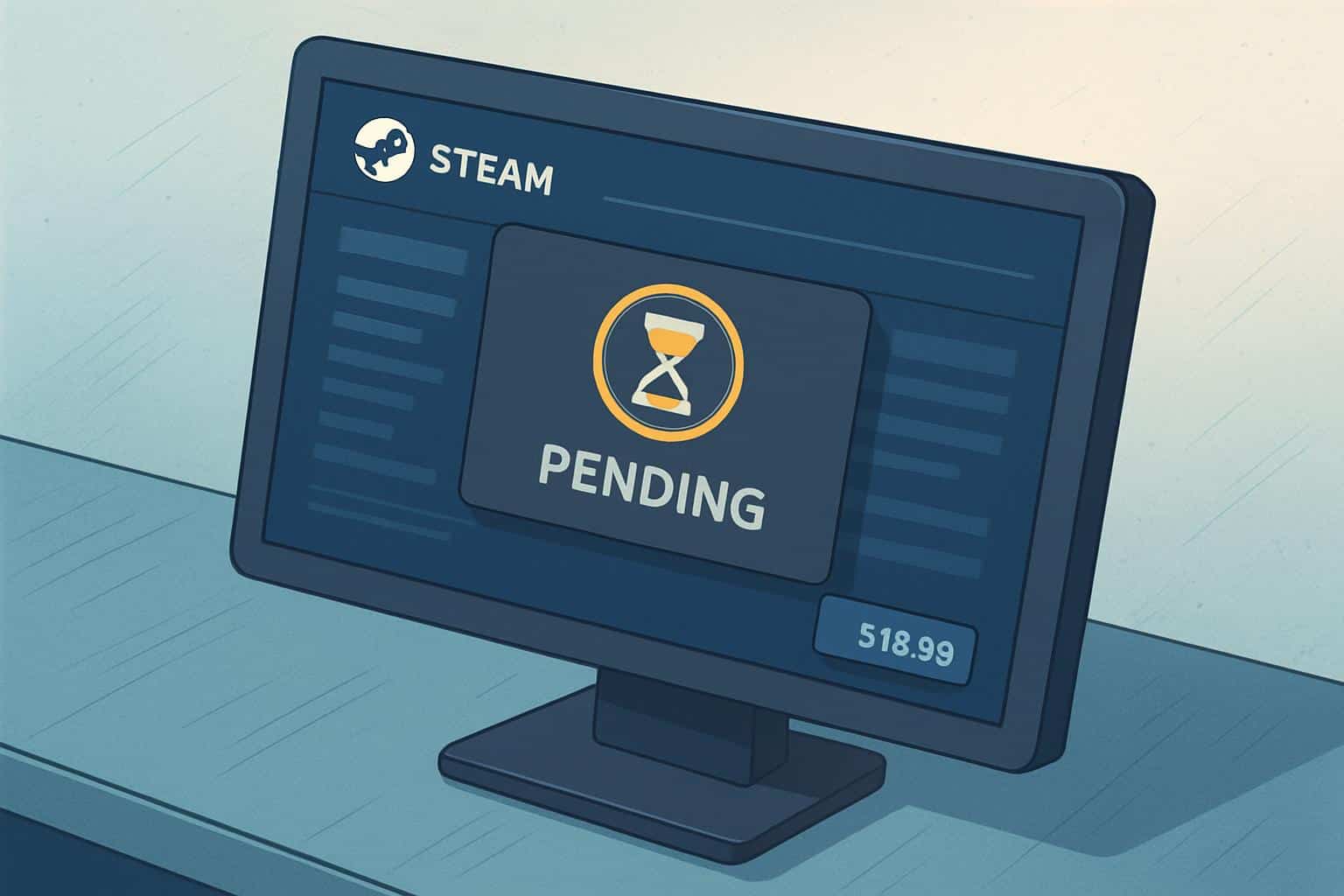
Do you remember if your last checkout concluded with a 3‑D Secure verification (one-time password or a push to your banking app)? If so, check whether you successfully completed the challenge. In the vast majority of cases, capture never happens if there are timeouts or the window is closed in the middle of a challenge.
Step 3: Start Over With a Clean Slate
When you retry, avoid changing as much as possible so that new risk checks are not triggered. Use the same device, the same network, and a single browser tab. Rebuild the cart from scratch. Complete all the 3‑D Secure prompts without switching apps until you receive final confirmation.
- VPNs or proxies: disable these during the purchase process.
- Use a current browser with pop-ups enabled to receive verification prompts.
- If your card is still hiccuping, try a small $5 Steam Wallet top-up and purchase with wallet funds. This separates card issues from cart issues.
The Three Clocks Model of Delays in Steam Payments
Imagine that every purchase is three clocks you are trying to have chime at the same time:
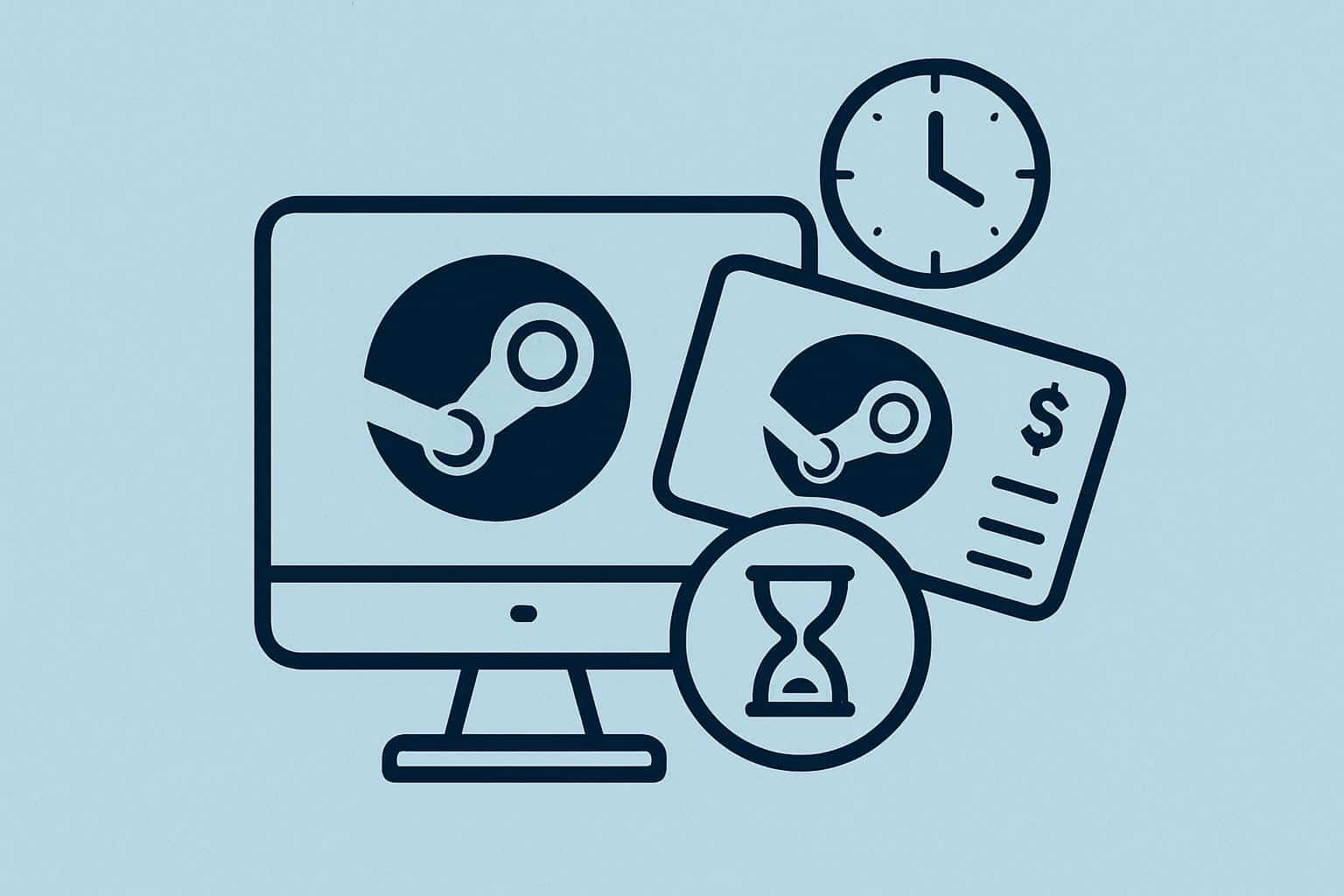
- Steam’s risk clock: Scans for atypical activity (new device, short retry time, high-value cart, regional pricing deviations).
- Your bank’s clock: Runs fraud rules and holds the money until capture arrives or a hold expires.
- The network clock: Payment gateways and 3‑D Secure servers have timeouts; if any step takes too long, capture will fail.
There is a pending Steam transaction any time a clock stalls. For example, the 3‑D Secure server times out but your bank already approved it, so Steam can’t complete the transaction, while your bank still keeps a hold for a few days. That’s broken from your point of view, but the clocks are just arguing.
Shiva Technique Nuances You Can Apply During Checkout
Some pendings belong to different payment methods. Exploit such subtleties for the following payment methods:
- Credit and debit cards: A number of fast declines can trip a stand-in hold at an issuer. Make at least 15 minutes between attempts and keep device, IP, and cart consistent.
- Bank transfer and local voucher: Confirmation may take between 1–5 business days. If you want the game now, cancel your Steam pending (if applicable) and use an instant method/Steam Wallet.
- Digital wallets: If you walked away after the redirect before completing the flow, a wallet can have a pending agreement but no completion charge. “RE-OPEN” PURCHASE & REDIRECT IN ONE STEP.
- Prepaid or virtual cards: Some issuers block international transactions or transaction types that look recurring by default. Pre-authorize it in your issuer’s app and try again, or just use a wallet top-up.
Smart Preventive Habits to Avoid Steam Payment Issues
- Only have one verified payment method and do not attempt to change it during a sale.
- Add your bank’s app notifications to the whitelist so you can breeze through 3‑D Secure prompts.
- Do not multi-tab the checkout, nor backspace out of the final step—let Steam return you to the success screen.
- If you experience frequent issues due to 3‑D Secure in your area, load your Steam Wallet before major sales and buy from wallet balance.
- Keep your billing address and postal code identical to what is known by your bank; small discrepancies may cause additional checks.
When to Sit Tight and When to Complain to Support
Use time as a signal. Most pendings on the Steam side clear or become cancelable within 30 minutes. Bank holds are often released automatically if capture never comes, but the duration varies by issuer.
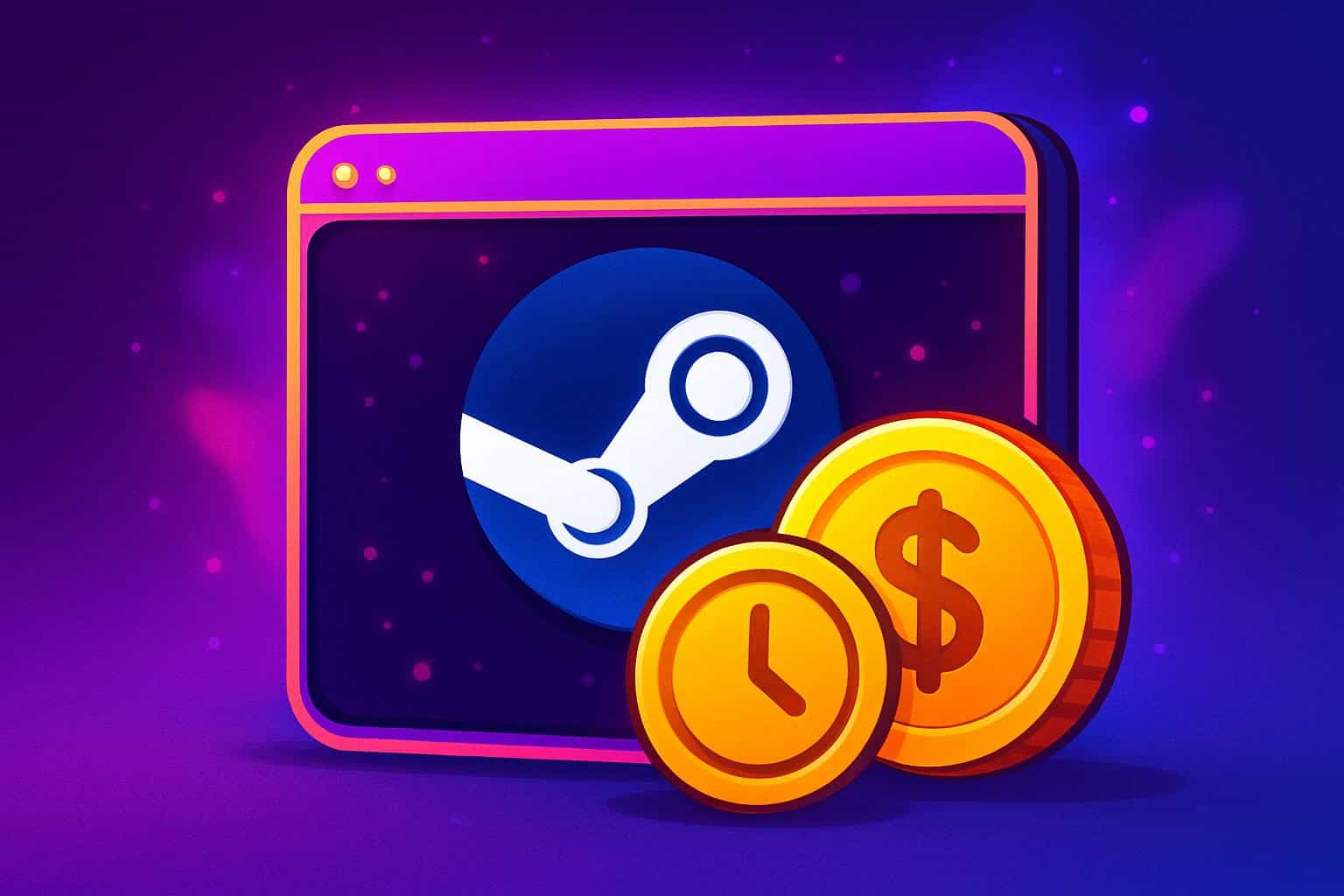
- Be patient: If Steam is processing and your bank shows a pending hold, please wait at least 15–30 minutes before trying again.
- Cancel on Steam: If the purchase history has a Cancel button, use it and wait a while before trying again.
- Contact your bank: If, after Steam has canceled or refused the order, the hold is still present, contact your financial institution regarding the status of the hold. Inquire about the completion time for their release; do not dispute an authorization hold.
- Contact Steam Support: If you do not have a Cancel button and the process takes longer than one business day, or if every try results in a new pending without being resolved.
A Simple Decision Framework for Steam Pending Payments
Here’s a short flow you can perform each time you spot that pending transaction from Steam:
- Any pending at the bank, nothing pending in Steam: Wait 15 minutes and retry once with a consistent setup. If it is unsuccessful again, use Steam Wallet or another instant method.
- Steam entry with Cancel: Cancel, wait a minute, and retry the purchase once. Don’t try it more than twice an hour.
- Pending in Steam without Cancel: Wait 30 minutes or so. If it is not corrected overnight, then you can “ratchet” up your pack (like resetting the target of a telescope).
The Takeaway: Quickly Resolve Steam Payment Pending
The great majority of purchase limbo on Steam is a timing disconnect—your bank said “yes,” but Steam couldn’t complete the handshake in time. The fix is tiny and exact: browse Steam’s purchase history, stop if it lets you cancel; otherwise make the next go clean, consistent, with no clogged retries. When you know how the three clocks work and when to follow the triage, you cut down on wait times, avoid having to hold two tickets at once, and get your game with minimum stress.

